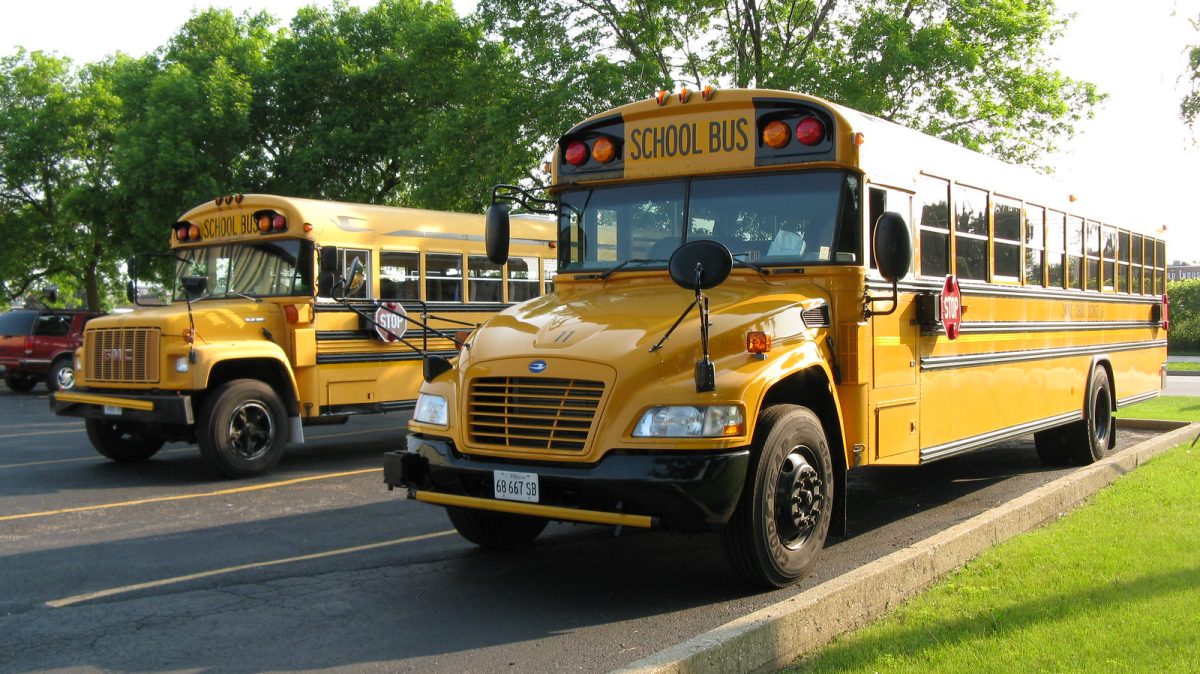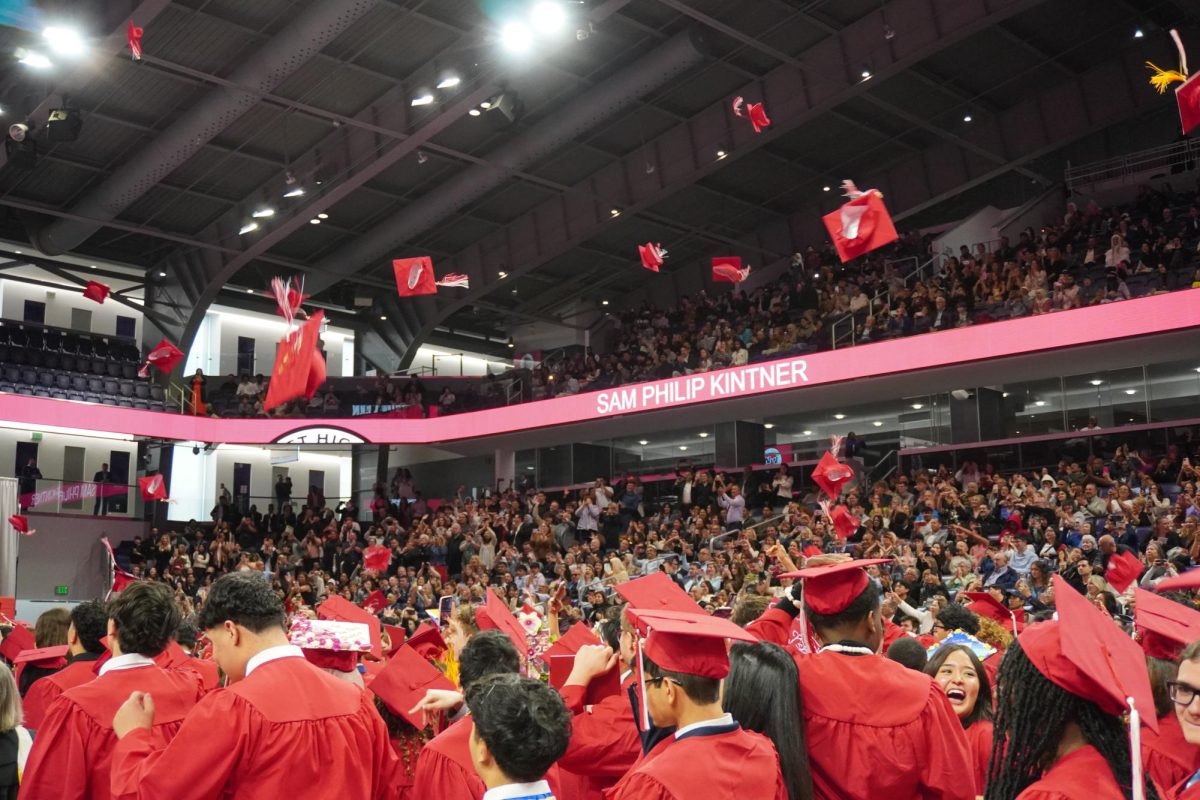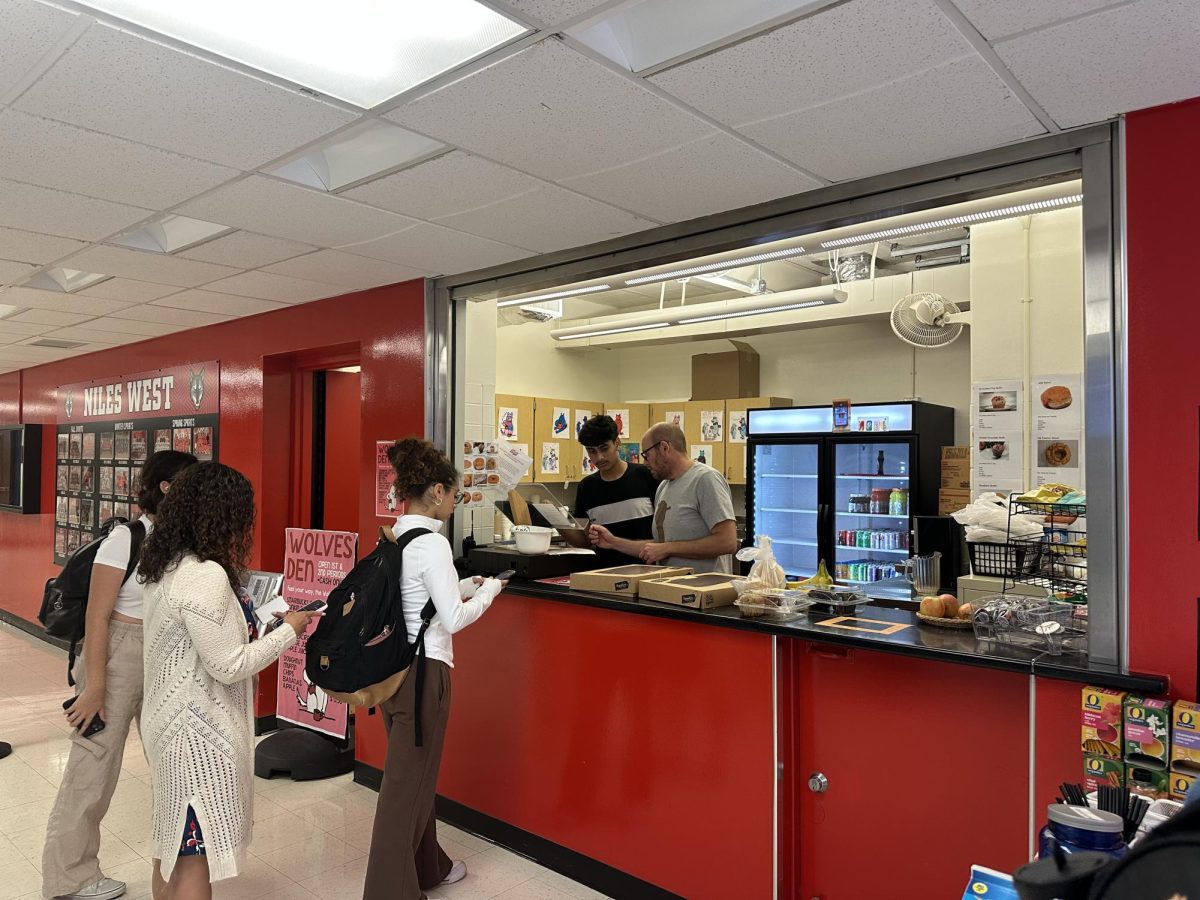While Niles West preaches the importance of being in class on time, lately the bus system has been making it more and more difficult for students to do that. Niles West’s bus system is plagued by unpredictable delays that oftentimes leave students waiting for extended periods at bus stops. These delays eventually cause students to miss valuable instructional time and disrupt their class, particularly for early bird students during late starts.
“I’m in early bird classes, and I get to school about half an hour late every Wednesday. My teacher said that if I come late one more time, she’ll give me detention. My parents both work and can’t give me rides, so now I have to walk to school on early bird days, which is about an hour’s walk from my house. It’s okay right now, but once the weather gets colder, it’s going to get really hard for me to get to school, and I’ll probably just end up getting weekly detentions,” sophomore Lucy Clarke said.
West’s current tardy policy states that students can receive extended detentions as they accumulate more tardies. While some teachers count tardiness due to the bus as excused tardies, others do not feel the same way.
Bus companies also have been struggling with hiring bus drivers, and due to the shortage, many drivers have to pick up for more than one school or route.
“I do 6 daily routes. Two are in the morning, two in the afternoon and two in the evening. I get four hours off in the late morning/noon. I drive for three schools– Niles West, North, and Bridges. I think a lot of the issues with buses being late has to do with the lack of organization and sometimes the radios we use to communicate are faulty,” bus driver Ed Bochnia said.
While some students are upset about buses not getting to school in time for their early bird classes, Assistant Principal of Operations Steve Parnther says that the buses aren’t technically supposed to drive early bird students to school.
“For late starts, our bus routes begin at 8:55, so what happens is sometimes the bus will get you here on time for early bird. However, early bird isn’t a part of our actual bus routes. So when students sign up for early bird, students are told that they have to provide their own transportation. Although this isn’t ideal, it’s part of the deal when students sign up for early bird,” Parnther said.
This issue also disproportionally affects students from lower-income families, who are more likely to take the buses. Lower-income students end up not being able to take as many classes as students who can provide their own transportation, giving them an educational disadvantage.
“I think the most important thing for me is we have to provide resources to all students at Niles West. We cannot say it’s equitable that students who have a car or who have transportation are the only students to take an early bird class. So whatever decision we make we need to make sure it’s fair for all students, regardless of their background or financial ability, to make it to school on time,” science teacher Parin Patel said.
There have been improvements to the bus system this year, such as a different drop-off point at door 2A and athletic students meeting at door 1A for their away competitions. This has helped streamline the buses’ drop off and pick up near the front of the school and gets buses moving to students’ destinations more quickly after school. While this has helped, members of the Niles West community still believe things can be better.
“We’re talking to the bus company about potentially starting the bus routes earlier, but that may not be possible because our buses are also tied to our feeder schools so whether it be pickup or dropoff, they typically do the feeder schools first,” Parnther said. “Since this is our first year doing this many late starts, there’s going to be some bumps in the road and we’re still analyzing things and trying to see what changes need to be made.”














